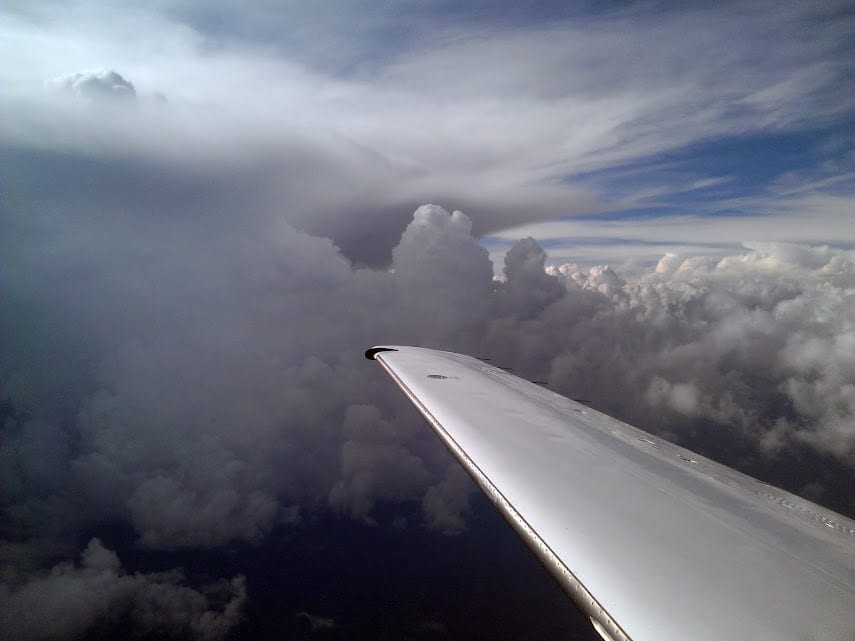Posts

The IFR conundrum: is it as it appears?
Dick's blogBack in the good old days, there was a lot of scud running and not much real IFR. A lot of us thought that the best way to improve the general aviation safety picture would be to get more people into IFR flying. But one of life’s simplest pleasures comes in realizing that you were wrong about something and that is true here.

Go or No Go: a tough flight home
Go or No GoThis Go or No Go is a little different. The scenario I'll present is an actual flight I had planned, and I was faced with a tough decision. I'll show the weather conditions that were forecast and my plan, then I'll let you decide if you would have flown the trip. Later, I'll share whether I decided go or no go.

Go or no go: down the front
Go or No GoManchester, NH (MHT) to Pittsburgh, PA (AGC) is the goal today so you can deliver your Piper Lance to the avionics shop for a new panel. The trip has been on the calendar for weeks and you're excited to see a glass panel go in your airplane, but Mother Nature isn't going to make it easy on you.

Do you cancel too many flights?
John's blogSome instrument pilots apparently are uncomfortable in anything less than clear skies and unlimited visibility. It raises the question: do you cancel too many flights? Has the aviation community beaten everyone over the head with the risk management stick so much that they’re gun shy? From what I read and hear, I think it’s quite possible.

Moments of sheer terror
I was thereAt about the time that I intercepted the localizer course, I went into a personal “brain dump” that could have cost me my life and defines this moment of terror. I had engaged the autopilot coupler and was in that dangerous “fat, dumb and happy” mode as I flew toward the runway exactly on course. I was in clouds and fog when something made me glance out the window.

The Weather Geek: occlusions, a bad time to fly
Weather GeekOcclusions don’t happen too frequently. I guess I might have had to deal with a dozen or so in 57 years of flying. But when one does present itself, you can get a better ride if you know what is going on and make a plan to avoid the worst of it.

Going out on top
Dick's blogIn this frank and personal article, Collins says he decided to "stop [flying PIC] with satisfaction" at age 74. His last flight was a good one, but "limiting flights to good weather took all the challenge and fun out of my flying. To me, dealing with inclement weather in light airplanes is one of the most interesting things that a pilot can do."

The Weather Geek: hello low
Weather GeekLet’s get the geek business out of the way first. If a person who has an abiding interest in weather, especially as it relates to flight operations, is a geek, then I am a weather geek. Highs and lows are what make the weather engine go. Highs aren’t exciting, lows can be full of thrills. I was reminded of this when we had that October snowstorm in the northeast.

Destination AOPA Summit
I was thereThis past September, the Northeast U.S. was plagued by “the low that wouldn’t go away.” This cutoff low-pressure system sat and spun for two weeks bringing daily gloom from the Mid Atlantic to Maine. Unfortunately, in the midst of this crummy weather, I was scheduled to give a talk at AOPA’s Summit in Hartford, Connecticut on September 24th.
